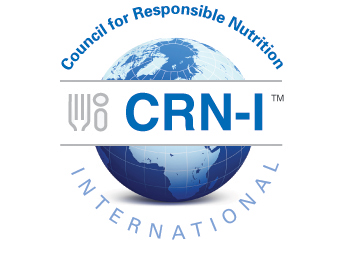| CRN-I’s second scientific symposium |
Nutrition Issues in Codex:
Health Claims and
Nutrient Reference Values
|
(Program in English)
Subject to Change
This symposium will provide detailed scientific discussions of two major nutrition concerns of Codex:
(1) the scientific basis of health claims, and
(2) the issues related to Nutrient Reference Values.
08:00
Registration and continental breakfast
08:50
Opening remarks
John Venardos
Vice-Chair, CRN-International
09:00
Policy Keynote:
Codex standards—their role in the international
and national regulatory framework
Dr. David Jukes
University of Reading, Reading, U.K.
Codex documents, including guidelines and standards, have value as educational materials for member governments and are sometimes used as templates for policy and regulatory decisions. Also, the WTO SPS agreement recognizes Codex as the presumptive international authority on food issues, and therefore Codex document could be decisive in related trade disputes.
09:40
Science Keynote:
Nutrient bioavailability—impacts on health claims and NRVs
Prof. Peter J. Aggett
Lancashire, U.K.
Nutrient bioavailability is a critical factor in determining the ability of nutrients to provide the beneficial effects that are the basis of health claims. Bioavailability also influences the quantitative dietary requirements that are the basis of nutrient intake recommendations and NRVs
Moderators:
Peter Prock, M.D.
European Nutraceutical Association, Basel, Switzerland
John Hathcock, Ph.D.
Council for Responsible Nutrition-International
Session 1: Scientific standards for food label claims
10:20
Scientific and regulatory frameworks for health claims
Prof. David P. Richardson
DPR Nutrition, Croydon, U.K.
Codex, EFSA and US FDA have established guidelines or regulations that will permit similar types of health claims—these include structure-function claims and disease risk reduction claims. The scientific basis for claims has been established by the US FDA and EFSA, but not by Codex.
10:50
Evidence-based nutrition—different from evidence-based medicine?
Prof. Philip C. Calder
University of Southampton, Southampton, U.K.
The substantiation of beneficial effects that are the basis of health claims requires consideration of the available evidence. In contrast to pharmacological data, nutritional datasets include epidemiological evidence. Is evidence-based nutrition difference from evidence-based medicine, and is it valid for the substantiation of health claims on foods
11:20
Break
11:50
Vitamin D—evidence for non-skeletal claims
Heike Bischoff-Ferrari, M.D., M.P.H.
University of Zurich, Switzerland
Vitamin D is well-known for increasing calcium absorption and enhancing bone health. Substantial epidemiological evidence and some clinical trial data suggest that vitamin D intake can have important effects on the risk of falls, cancer, cardiovascular disease, and other health effects. Are the data for the non-skeletal effects robust enough to justify health claims?
12:20
Heart health—what claims are justified?
Theresa Nicklas, Dr.PH., M.P.H.
Baylor College of Medicine, Houston, Texas, USA
Diet clearly influences heart health and disease, but the roles of specific nutrients and other ingredients varies from one to another. Omega-3 fatty acids have good supporting data, but there is less evidence for other substances, including vitamin E. Disease risk reduction and structure-function claims may require different types of data.
12:50
Lunch
14:00
Health claims—a medical researcher's view
Helmut Sies, M.D.
Heinrich-Heine-University, Dusseldorf, Germany
Health claims on foods may provide useful information to consumers, but many will over-interpret the information to mean that they can rely upon the food or nutrientto eliminate a disease risk. Many physicians and other healthcare providers are cautious about recommending nutrients in relation to health claims. Because the scientificevidence changes, defining criteria for substantiating health claims must be anongoing process.
14:30
Food manufacturers—a view of label claims
Prof. Stefan Mϋhlebach, Ph.D.
Vifor Pharma, Ltd., Glattbrugg, Switzerland
Food and food supplement manufacturers need to convince consumers that their products are beneficial and safe. Health claims on food labels may persuade some consumers the products are useful in enhancing health.
15:00
Break
Session 2: Issues related to Nutrient Reference Values (NRVs)
15:30
Codex NRVs—impacts of choices of INL-98, means, and age groups
Oran Kwon, Ph.D.
Ewha Womans University, Seoul, Republic of Korea
NRVs are designed to provide a quantitative basis for comparing the nutritive values of foods. Many consumers interpret the NRVs as being the recommended nutrient intakes for them. The INL-98 and the mean of adult male and female values provide NRVs that are sufficient when used as targets for individual intakes.
16:00
Consumers’ understanding and use of NRVs
Monique Raats, Ph.D.
University of Surrey, Guilford, Surrey, U.K.
NRVs, as defined by Codex, are the mean of adult male and adult female INL-98 values. As such, NRVs should be useful to compare the nutritional values of foods, but also for consumers who do not know the recommendations for their specific age/gender group the NRVs may sometimes serve as surrogate recommendations.
Session 3: World Trade Organization—
member obligations related to Codex
16:30
SPS and TBT Agreements—
impacts on maximums and claims
Maurits J.F. Lugard
Sidley Austin LLP, Brussels, Belgium
The World Trade Organization (WTO) recognizes the Codex Alimentarius as the primary, but not only, international authority on food issues. No decisions by Codex can override the obligations pursuant to the WTO Sanitary and Phytosanitary (SPS) Agreement and Technical Barriers to Trade (TBT) Agreement. The SPS and TBT Agreements can be examined for potential impacts on Codex recommendations on maximums and claims.
17:00
Close
|
